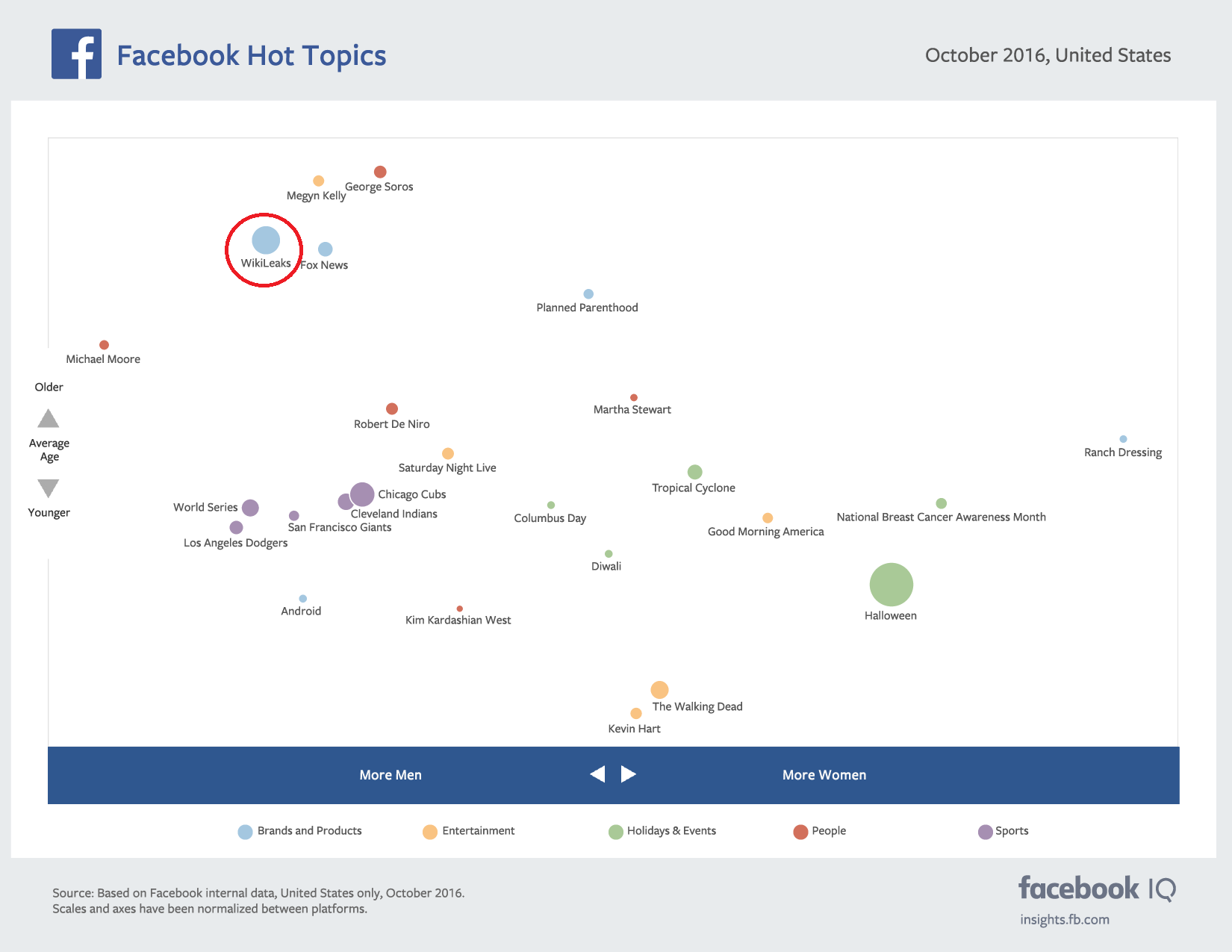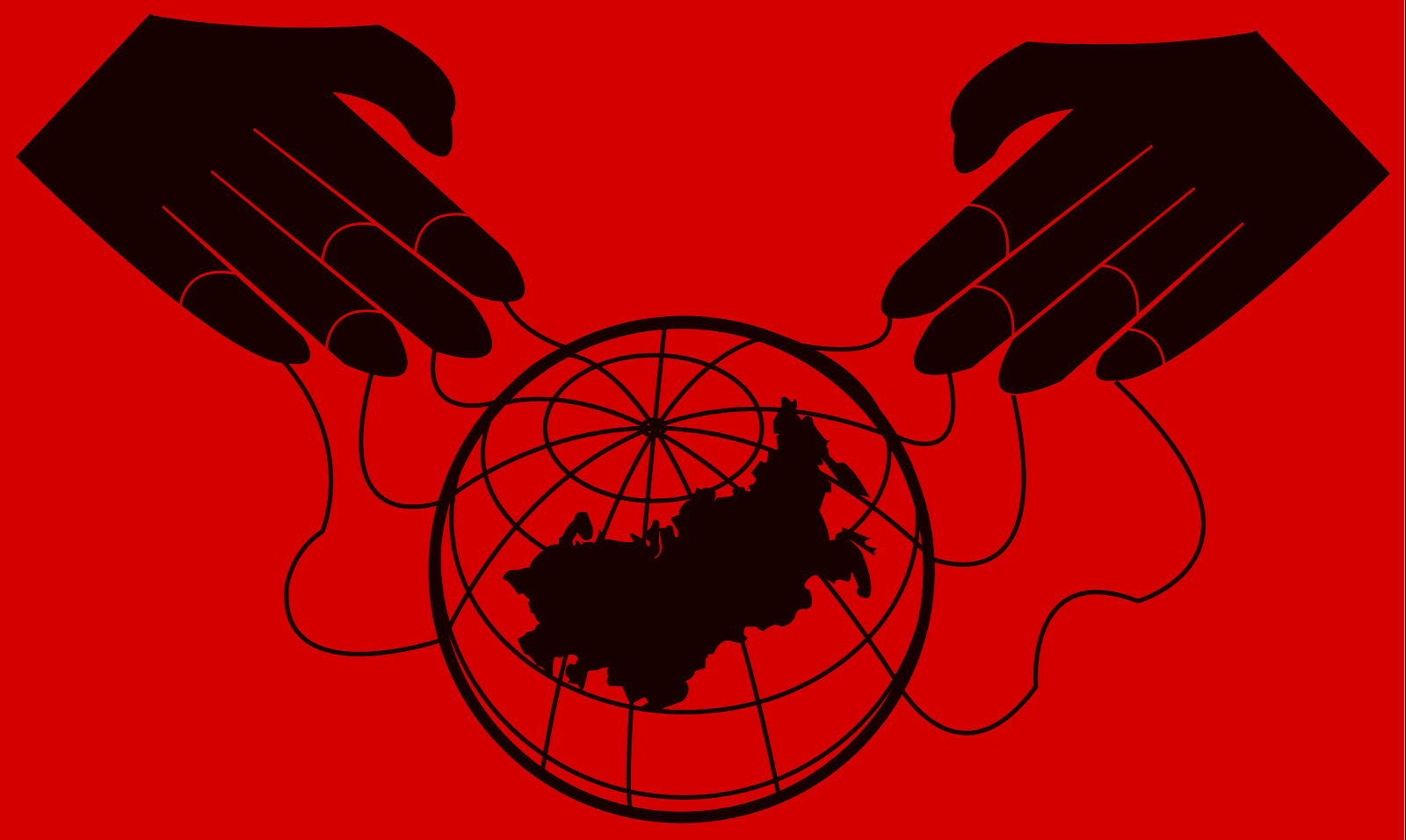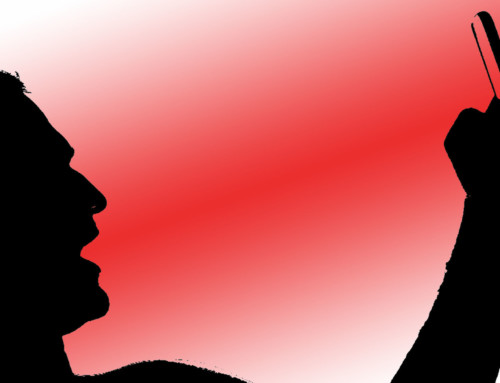Well over a month since the 2016 election and more than two months since a public ODNI assessment of the matter (an organization which represents the combined views of 17 U.S. intelligence agencies), many people seem to be screwing up the Russia hacking story. For obvious reasons, Clinton proxies have hit the airwaves declaring that it was the linchpin upon which the election turned. For equally obvious reasons, the president-elect and his distressing parade of appointees have dismissed it as the work of conspiracy theorists. Adding to the chaos, disenchanted leftists and paid Russian shills have further stirred the pot of unreality, asking (in a baldly false equivalence) why Democrats should trust the same intelligence agencies that once led the United States to invade Iraq. As a consequence, the issue has become muddied. Only 55 percent of Americans are “bothered” by the hacking story, split almost wholly along party lines.
I want to lay down a few points that are, in my mind, abjectly true. Even before the election, I assumed these things were common knowledge. I realize too late they were not. Interspersed here will be my conclusions, based on the facts as I understand them.
1. Early this year, hackers in the employ of the Russian state breached the servers of the Democratic National Committee and Clinton campaign. There were two separately identifiable groups of hackers: APT 29 “COZY BEAR,” a sophisticated network that has often worked on behalf of Russia, and APT 28, “FANCY BEAR,” a network that is likely directly linked to Russian military intelligence. That these groups were involved is not conjecture, but the documented cyber forensics evidence of two cybersecurity firms, first CrowdStrike and then an excellent series by ThreatConnect. These firms (whose services were hired at various times by both Clinton and Trump) note telltale signatures in code of the intrusion tools and even commonalities in the email addresses used to register the spoof web domains used to phish DNC and Clinton staffers’ passwords.
The accumulated findings of these reports are damning evidence on their own—unclassified and open source, predating any official U.S. attribution, and free for all citizens to peruse. Should you encounter anyone who blithely pleads a lack of proof for Russian involvement, you should direct them here.
2. The result of these hacks was disseminated via Wikileaks. At first, Russian hackers set out to release this entire bundle of documents themselves, even setting up a new Wikileaks copy, “DCLeaks,” and shopping around to journalists. The result was comedy. The Russians were so bad at disguising themselves that cyber analysts assumed this was a complex game of three-dimensional chess. Moreover, the Russians were hopelessly lost in determining what information was or was not incriminating. At some point, the plug was pulled on this aspect of the operation: why pour such effort into building a new Wikileaks when Julian Assange himself, eager for relevance, would happily do the job himself?
This is not to say that Assange willfully worked for the Russian state. At no point in his correspondence with “Guccifer 2.0” would it have made sense for Assange to inquire as to the leakers’ identity, which would run contrary to the spirit of his organization. Simultaneously, “Gufficer 2.0” would have no reason to volunteer more information about itself than strictly necessary—only enough to prove the basic veracity of the leaked documents. Therefore, each side could benefit greatly from this arrangement while retaining a mask of anonymity.
3. These hacks inflicted incalculable harm upon the Clinton campaign. It is clear that Wikileaks, Russian actors, or both, acted to exert maximum impact upon the U.S. presidential election and to the detriment of the Clinton campaign. This is evident in the timing of that first release of 20,000 messages on July 25, 2016, the same day as the opening of the Democratic National Convention. These documents stirred Bernie Sanders supporters into a fury. They dominated coverage of what was otherwise an optimistic and finely orchestrated affair; a sharp contrast to the “law-and-order” dystopia of the Republican convention that had been on display the preceding week. In August, Wikileaks began the steady drumbeat release of the #PodestEmails: first in weekly batches then, as Election Day loomed, in new “revelations” every day. My suspicion is that this release schedule was driven by Assange’s finely tuned sense of theatrics, with minimal input from Russian agents, whose job was already done.
What was in these emails? Very, very little. These “4 Most Damning Revelations” of the DNC emails reveal what was clear to anyone with a tertiary view into Democratic politics—that party officials griped privately (and profanely) about some aspects of the Sanders campaign. The 20,000 emails of campaign chairman John Podesta show, at worst, an impropriety by then-DNC Vice Chairwoman and CNN commentator Donna Brazile in leaking a CNN debate question regarding the death penalty (not exactly a curveball to begin with). Skimming a random selection of these emails reveals a surprisingly humorous and self-deferential candidate, an unsurprisingly thin-skinned campaign, and a whole lot of ordinary political staffers struggling to do their mundane jobs. By the historical standards of any American presidential campaign, the shocking conclusion is not the abundance of double-dealing and corruption, but rather its absence.
But what did Americans think was in the emails? This is the much more important question.

An analysis of the most-discussed topics on Facebook in October 2016, graphed by gender and age demographics. The size of each topic represents its total conversation volume.
Here, we necessarily enter the realm of conjecture as we await a new generation political science dissertations that may put the question to rest. What we know is that, in the month preceding the election, “Wikileaks” was the second-most-discussed topic on Facebook, overtaken only by Halloween. We also know that “fake news,” hoax websites that profited immensely from patently false stories that catered to the biases and inclinations of Trump supporters, crushed “real” news by Facebook audience share in the final weeks before the election. Therefore, we can infer that many fake news articles cited Wikileaks emails that did not exist, or reporting about nonexistent emails, or reporting about the reporting of the same. In what seems (in retrospect) the wonderfully placid year 2012, Jon Stewart coined a term, “Bullshit Mountain,” describing Fox News’ tendency to stir and then tediously report on made-up crises as they fed on their own nonsense.
This was Bullshit Mountain engorged with all the sound and fury of the social media age. It was a massive, nonsensical echo chamber with thousands of independent media operators (including a disconcerting number of Macedonians), set on deluding partisans with a deluge of ever more tawdry tales. Way back in 2014, reporter John Herrman predicted what the first “Facebook Election” would look like. “ 2016 will be less about attack ads and TV talking heads and Driving the Narrative,” he wrote, “than it will be about dog-whistling from the News Feed. 2016 will be about internet content that hits you by surprise and then tickles your lizard brain. Think of the PAC-written Upworthies! Imagine viral Swiftboating.” Herrman’s was a prediction so incredibly and tragically correct.
There was an cumulative effect to this growing tower of Bullshit. Even if the fakery was usually clear to even the most strident Trump supporters, it invited new questions and raised fresh doubts. It induced a logical fallacy along the same lines of “DidGlennBeckRapeAndMurderAYoungGirlIn1990.com:” these things were probably not true, but they might be. There were, after all, more than 40,000 emails in the Wikileaks disclosure, plus tens of thousands more emails from Clinton’s time as secretary of state. Who knew what could be in all of them? Who could say for certain how evil her devices were (for at this point “Clinton” and “corruption” had essentially become synonyms in the parlance of the right). At no point could the Clinton campaign issue a denial of the wildest of these rumors, for they knew this would invariably make things worse. There is an old and humorous legend that, in one of Lyndon Baines Johnson’s first congressional campaigns, he sought to paint his opponent as a “pig-fucker.” When his campaign manager pushed back, crying that there was no proof, Johnson apocryphally replied, “I know. I just want to hear the son-of-a-bitch deny it.”
In turn, I suspect that this swell of anti-Clinton online sentiment translated into innumerable offline discussions in local diners and around dining-room tables. It is a little-documented but critical component of modern information flows that rumors that begin online can have a cascading impact through both traditional media apparatuses and word-of-mouth. As I wrote with P.W. Singer regarding the riddle of the Islamic State’s viral propaganda success in Iraq, a nation with roughly 20 percent internet penetration, online and offline worlds seamlessly merged. If you did not own a smartphone, a friend probably did. Accordingly:
As ISIS invaders swept across northern Iraq two years ago, they spammed Twitter with triumphal announcements of freshly conquered towns and horrific images of what had happened to those who fought back.
…
Media reports from the region were saturated with news of the latest isis victory or atrocity, helping to fuel a sense of the Islamic State’s momentum. There was no time to distinguish false stories from real ones. Instead, each new post contributed to the sense that northern Iraq had simply collapsed in the face of the ISIS onslaught.
And then it did.
In the same way, the self-perpetuating Bullshit machine created immutable truths about Clinton from bald-faced lies based on fine grains of truth. Truths extracted at the behest of Vladimir Putin and the Russian state.
3a. These hacks swung the 2016 presidential election. Here, debating correlation and causation in the most complex, important, longest-running act of political theater in modern history, there is only conjecture. I can point to any strength in Trump’s campaign message and confidently assert a reason for his victory; I can do the same of virtually any political or mechanical decision taken by Clinton or any of her surrogates in 24 long months.
Nonetheless, it is my belief as a student of politics and social media—and a close observer of the online election tumult—that Wikileaks had a decisive effect. Beyond Clinton’s impressive popular vote win (itself a damning piece of evidence), Trump won the electoral college by only 78,000 ballots among 136 million cast. Or .00057 percent. Upon such a razor-thin margin, virtually anything can be attributed to Trump’s improbable success. It takes some extraordinary partisan acrobatics to exclude Russian state interference from this category.
4. The purpose is stasis. So why did the Russians do it?
I don’t think that the reason is that Vladimir Putin or the Kremlin or many people, really, outside of Trump diehards and a few true believers in the Trump war room, thought he was actually going to win it. In the weeks after the election, Democrats have ascribed near-boundless powers of omniscience to Putin and his government, most clearly as a salve for their own damaged egos. It feels better, somehow, to have been beaten by a KGB-trained Vulcan mastermind who can predict the future; whose machinations lent crucial aid to an orange windbag of a Manchurian Candidate.
But this is wrong. Putin is just a mortal man—a savvy thug—and the Russian state is inferior by all material measure, including intelligence capability, as compared to the United States.
Instead, we can reasonably conclude that Russia, alongside dozens of U.S. political pollsters and both presidential candidates, thought that Clinton was going to pull through. The intent of Wikileaks and all other alleged Russian electoral interference was not to help Trump, therefore, but to hurt Clinton. Never was it a Russian strategic aim to secure a warm, friendly, pro-Russian regime. Instead, it was—and will remain—Russian policy to muddle U.S. domestic politics as much as possible. As I wrote with P.W. Singer of this phenomenon back in October:
The ultimate intent is not so much victory for a certain side, but a loss for everybody: sapping the credibility of U.S. institutions and tearing open as many wounds as possible. After Election Day, we should not be surprised to find a vocal group of internet users with mysterious IP addresses decrying the result as a fraud and driving talk of conspiracy—and even of resistance or secession. In time, we may see a multiplying number of homegrown violent extremists (along the lines of the infamous Oregon militiamen), encouraged by the subtle manipulation of a certain rival government.
In other words, the Russian purpose is stasis. Merriam-Webster defines such stasis as:
2a: a state of static balance or equilibrium :stagnation b: a state or period of stability during which little or no evolutionary change in a lineage occurs
King Philip II of Macedon famously kept the small, independent cities of Greece in a state of stasis, pressing a finger on one side of the scale or the other, as his empire swallowed them at a leisurely and digestible pace. They were tactics against which the Athenian orator Demosthenes fruitlessly inveighed for years. Despite all his persuasive skill, how could he encourage each city not only to solve its own problems, but also to band with its sisters and to respond with force to an enemy so well practiced in manipulation and misdirection? Similar methods of stasis were long used by the nations of Europe to coral the squabbling princelings of Germany; and by the mighty United States to bend the will of the Americas.
But now we are entering a new and unprecedented age. Stasis, a reliable means by which strong states have controlled weak ones, may now be used with equal effect by the weak upon the strong.
For too many years, U.S. defense planners missed or ignored the extent to which Russia felt besieged by the enmeshment of U.S. alliances and series of color revolutions that swept eastern Europe. We certainly missed the extent to which Russia military theory enshrined information—not intelligence or cyber warfare but information itself—as a discrete means of warfare. So important is the role of information in Russian military thinking that it warrants its own doctrine, updated this month, that sees information as a principle tool in “strategic deterrence and prevention of military conflicts.”
It should not take a Kremlinologist or anyone with more than a cursory understanding of Russian politics to appreciate that Russia, feeling beset by foreign adversaries, will seek to keep them in a state of confusion. It happens to be a happy coincidence for Russia, faced with an insurmountable deficit in conventional arms, that the information environment created by Facebook et al. serves these purposes so tidily.
5. The future purpose is stasis, too. Understanding that the intent of Wikileaks and all other Russian influence operations was not to elect Donald Trump (an unlikely but favorable scenario), but rather to keep the U.S. political system beset by stasis, we can take a good guess at predicting the future. RT, Sputnik, Russian trolls, and mysterious Slavic “hacktivists” will not be—as many observers seem to assume—shills for the Trump administration. This will be the work of Breitbart and company. Rather, it will be the intent of Russian influence operations to stir both the far right and far left: to continually highlight Trump’s “surrenders” to the forces of liberalism while simultaneously bolstering the chances of far-left candidates, stridently anti-corporate and pro-Palestinian, who can peel votes away from a moderate candidate who might otherwise unite the anti-Trump opposition.
Ironically (in what surely sounds like conspiracy-theory), it will be in the interests of Russian propagandists to exaggerate the potential role of Russian influence in the 2016 presidential elections, albeit always leaving sufficient room for doubt. It is of no concern to Putin if Americans perceive Russia to be mightier than it is; it will certainly serve Russian purposes to have a sizable portion of American voters believing their president is a stooge of the Kremlin.
The ultimate goal is likely not, however, permanent rapprochement. Only the wildest of dreamers can look ahead 50 years and assert that the future interests of the United States and Russia are much aligned. Russia is a failing state, while the United States (despite its best efforts) seems set to hold its sway over at least two-thirds of the world. Although appreciation of democratic norms has seen dangerous erosion in this nation, American youth are remarkably liberal-minded; it is still largely unthinkable that the regime that governs Russia can take root here. Russian military planners foresee a future conflict that they cannot conceivably win. And so they seek to throw their adversaries into stasis—and win, by tiny, incremental skirmishes, a “conflict” that looks nothing like conflict at all.
Original header image by Cody Weiland.




Seen the cybersecurity firms’ reports, read everything I can lay my hand on about this. Knowing what I know about hacking I am NOT convinced.
These APT groups have “superb tradecraft” yet left all sorts of comic and clumsy clues as to their identity.
There is “nothing” in the emails yet they caused incalculable damage.
This entire train of argument is riddled with contradictions and holes.
But here is an argument I see so often: my words are “riddled with contradictions and holes,” yet neither contradictions or holes are forthcoming.